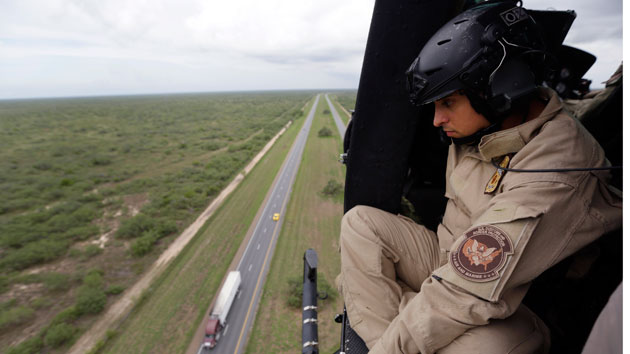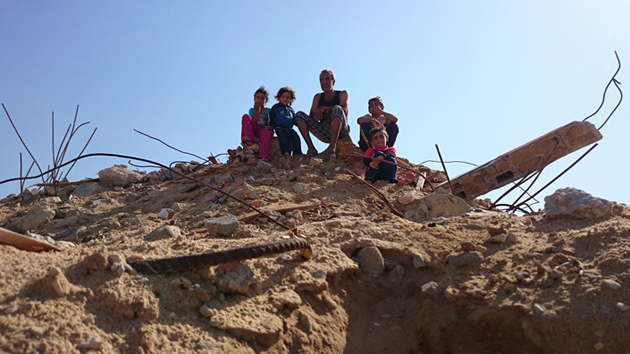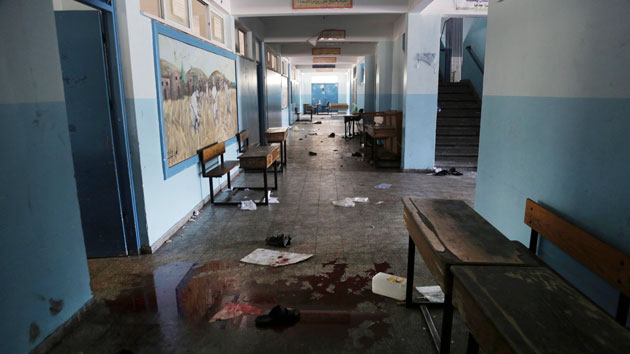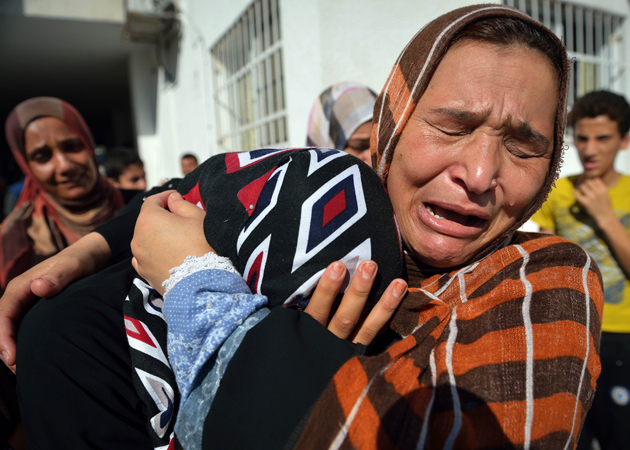It was dark in Gaza City when the teenage boy came home from work, in February 2013. His squat apartment building was missing a wall, destroyed some time before in the war between Israel and the Palestinians. But where else could he go?
In the dark, he tripped on rubble and fell out of the building, three stories down. His family rushed him to the nearby al-Shifa hospital as he struggled to breathe; his fractured ribs had caused internal bleeding, and his lungs were beginning to collapse. In the trauma unit, he was handed over to Dr. Ben Thomson, a visiting physician from Ontario, Canada. The necessary procedure—to insert a chest tube—was routine and straightforward. But the hospital, like the boy’s home, was without electricity; the operation would have to be carried out in darkness.
“We were not really able to see him,” Thomson recalls. “We were unable to assess where he was bleeding from, unable to see the ultrasound screen, everything you would normally do with simplicity, we were unable to do that. And this boy ended up dying.”
In retrospect, Thomson says, solar power probably would have saved the boy’s life. Gaza’s hospitals struggle with regular electricity shortages, and Thomson and some of his colleagues are now leading a push to use rooftop solar panels to help address the problem.
Gaza, the strip of land that, along with the West Bank, constitutes the Palestinian territories, has been hit hard in the decades-long conflict between Palestinians and Israel. Years of shelling, air strikes, and heavy restrictions on the flow of goods and people across its borders have left Gaza with devastated infrastructure and a shell of an economy. Unemployment among its 1.8 million residents, according to a recent World Bank report, is roughly 43 percent—the highest in the world. A major factor in the region’s economic collapse, that report concluded, is a supply of electricity that meets less than half the demand.
Electricity shortages are one of the region’s most persistent and pernicious problems. Gaza’s only power station was damaged by Israeli shelling last summer and is chronically short of fuel. Even in the best times, it provides only a small portion of the power needed. Electric utilities in Israel and Egypt provide some additional energy. For many homes and small businesses, there are few other options: Gas and firewood are scarce, while fuel for diesel generators is limited and extremely expensive thanks to a strict blockade on imports enforced by Israel since 2007. As a result, blackouts have for years been a routine part of daily life. A “good day” means getting eight hours of power, said Husam Zomlot, an economist in the West Bank city of Ramallah.
“The consequences are absolutely severe,” he said. “Any economy will depend primarily on the energy sector. It’s the starting point for any transaction.”
Hospitals are acutely affected by the outages. As Thomson found repeatedly during his work in Gaza, simply turning on the lights is often the difference between life and death.
“A lot of patients die unnecessarily” because of electricity shortages, he said.
Especially for the highest-risk patients, a steady flow of electricity is vital. Ventilators and dialysis machines are only useful for patients if they remain turned on at all times. Dr. Tarek Loubani, a colleague of Thomson who often works in Gaza, said he instructs family members of patients on ventilators on how to blow air into the chest tube themselves, in case the power for the ventilator pump cuts out. Surgeons often head into the operating room unsure if they’ll have power for three hours or three minutes.
“You’re worried all the time, you’re rushing all the time,” Loubani said.
When blackouts hit and hospitals have to rely on diesel generators, the cost can be crippling. Dr. Medhat Abbas, the executive director of al-Shifa, where Thomson’s teenage patient died, recently told Loubani and filmmaker Amy Miller that fuel for generators can run him up to $400,000 per month. As a result, he can only afford to run them for a few hours each day.
So last month, Thomson and Loubani kicked off a campaign to fix the problem. Their solution: Equip Gaza’s hospitals with solar panels. Their campaign, EmpowerGAZA, is being supported on the ground by the United Nations Development Programme and has raised just over half of the $200,000 they expect to need to install solar arrays on one major hospital. (More hospitals could follow if more money comes through.) The panels won’t produce enough energy for all of the hospital’s needs, but they can fill gaps for the most vital sections of the hospital.
Their inspiration was al-Shifa itself, which installed a solar system last fall with the support of a Japanese development agency. In the months since, Loubani said, that hospital’s intensive care unit—which handles life-or-death emergencies—hasn’t experienced a single moment of blackout. Power from the panels makes doctors’ jobs easier and safer, while fuel savings free up cash that can be spent instead on equipment and medicine. And with Gaza’s 320 days per year of sunshine, solar is far more reliable than liquid fuel.
Hospitals could be just the beginning, Zomlot said. Solar power on homes, businesses, and schools could also be an efficient and effective way to make immediate improvements to the standard of living in Gaza.
“People have really been creative in trying to bypass the blockade and trying to find a solution,” he said. “Luckily Palestine is one of the richest countries worldwide in terms of solar.”












